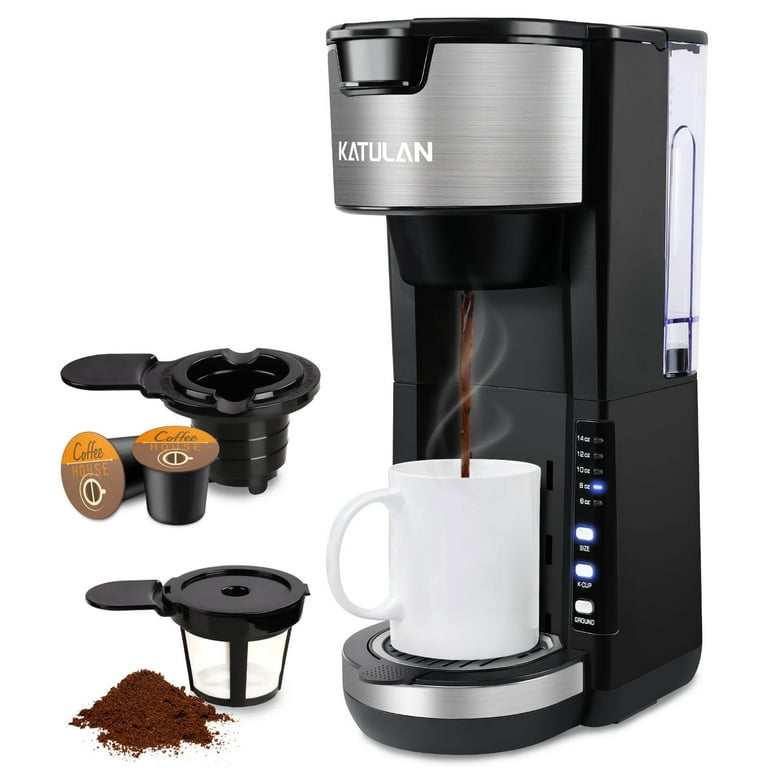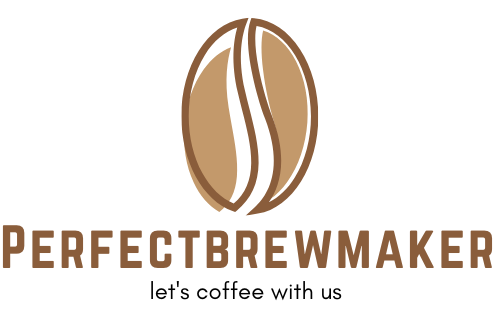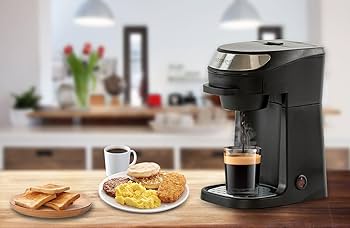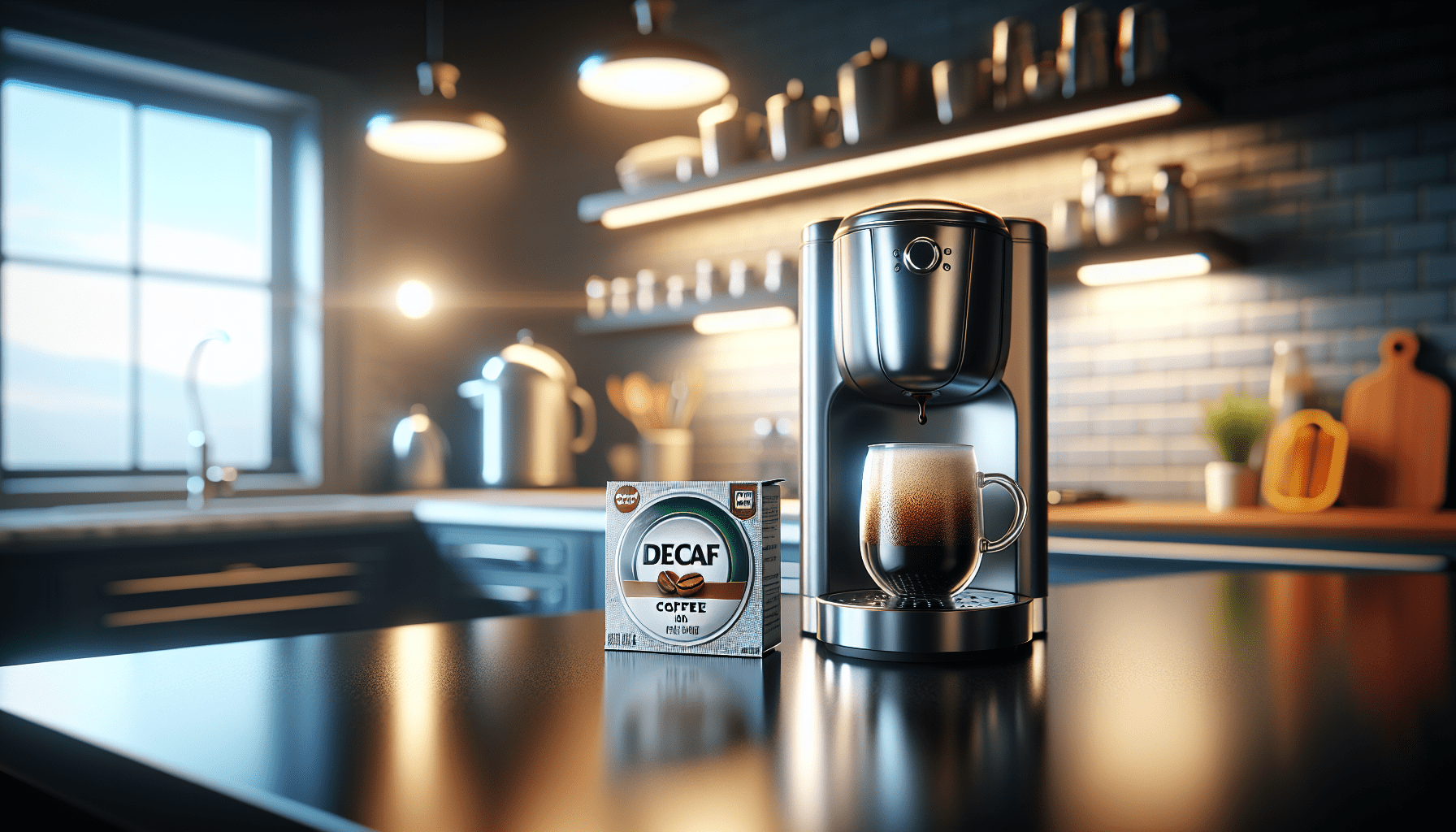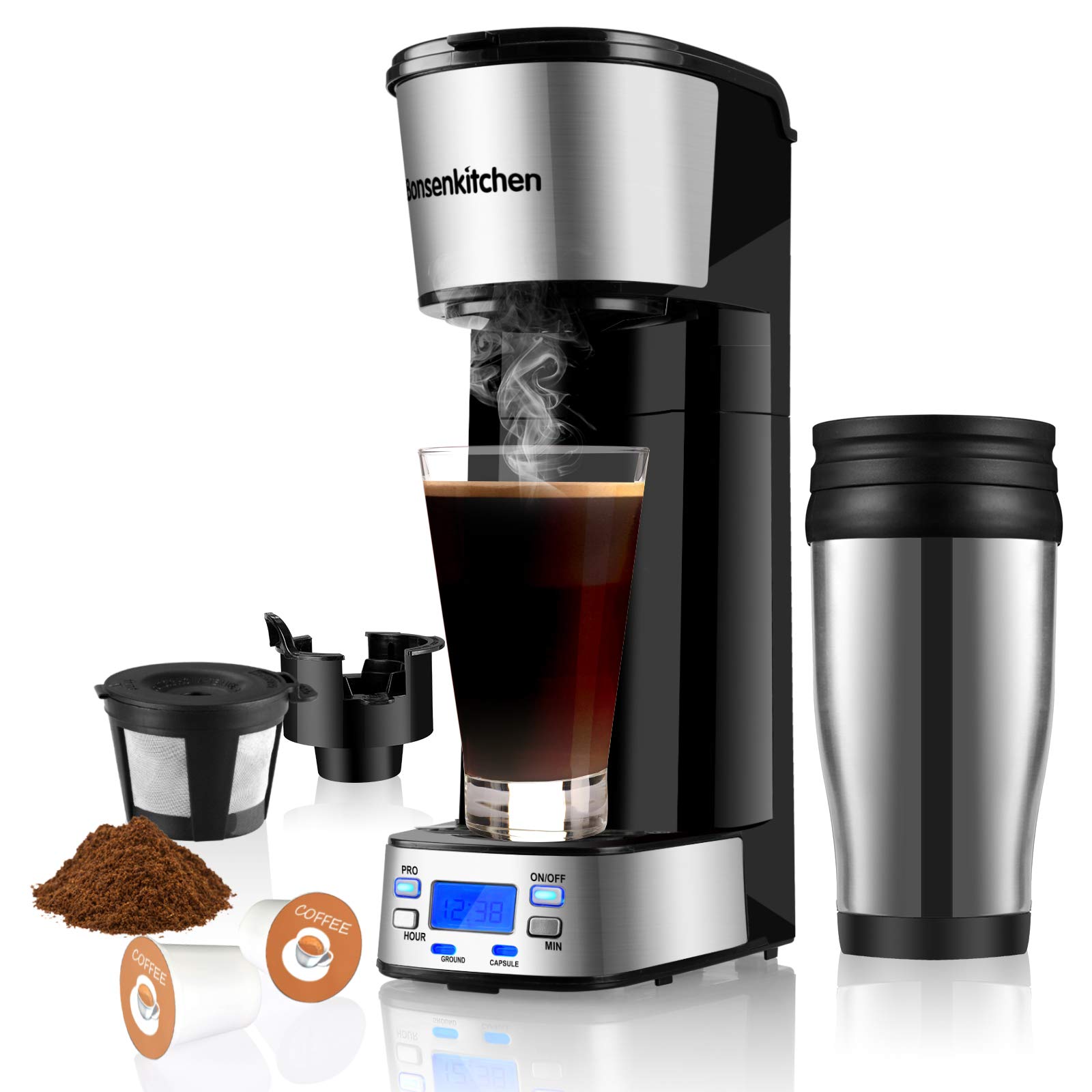If you ever find yourself wondering if your single-serve coffee maker can be used with a water filtration system, you’re in the right place! In this article, we will explore the compatibility of single-serve coffee makers with water filtration systems, helping you to enjoy a better tasting cup of coffee while also ensuring the longevity of your beloved machine. Stay tuned to discover the benefits of incorporating a water filtration system into your coffee routine. Are Single-serve Coffee Makers Compatible With Water Filtration Systems?
Are single-serve coffee makers compatible with water filtration systems?
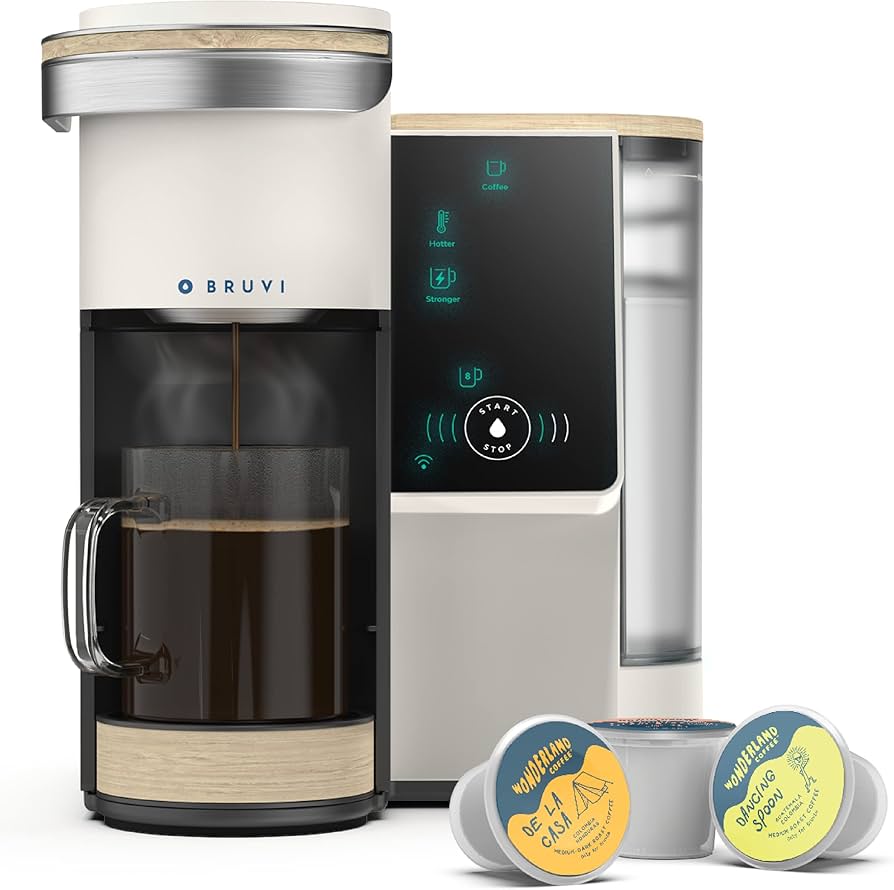
Introduction
If you’re someone who enjoys a good cup of coffee, you’ve likely considered investing in a single-serve coffee maker for the convenience it offers. But what about water quality? Can you still enjoy the benefits of a water filtration system when using a single-serve coffee maker? Let’s dive into this topic and explore whether these two technologies can work together seamlessly.
Exploring Compatibility
Let’s address the burning question on your mind – can you use a water filtration system with your single-serve coffee maker? The short answer is – it depends. While some single-serve coffee makers are designed to work with certain water filtration systems, others may not be as compatible. It’s essential to understand your coffee maker’s requirements and the type of water filtration system you’re using.
Types of Single-Serve Coffee Makers
Before we delve deeper into the compatibility issue, let’s take a closer look at the different types of single-serve coffee makers available on the market. Understanding the variations can help you determine how well they align with water filtration systems.
Pod-based Coffee Makers
Pod-based coffee makers, such as Keurig, Nespresso, and Tassimo, are some of the most popular single-serve options. These machines use pre-packaged coffee pods to brew your favorite cup of joe quickly. While convenient, they may have specific water requirements to ensure optimal performance.
K-Cup Coffee Makers
K-Cup coffee makers, a type of pod-based machine, are designed specifically for Keurig’s patented K-Cup pods. These machines vary in features and capabilities, so it’s crucial to check if they are compatible with water filtration systems.
Espresso Machines
Espresso machines, like the Nespresso VertuoLine, offer a more specialized brewing experience for those who enjoy espresso-based beverages. These machines may have specific water quality needs due to the nature of espresso brewing.
Traditional Drip Coffee Makers
Although not as flashy as pod-based machines, traditional drip coffee makers are still prevalent among coffee enthusiasts. These machines may have varying requirements for water quality, depending on the manufacturer.
Benefits of Using Water Filtration Systems
Now that we’ve covered the basics let’s delve into the benefits of using water filtration systems with your coffee maker. Clean, filtered water can have a significant impact on the taste, aroma, and quality of your brewed coffee. Here are some advantages to consider:
Improved Taste
One of the most noticeable benefits of using a water filtration system is the improved taste of your coffee. Filtered water removes impurities, such as chlorine or minerals, that can affect the flavor profile of your brew.
Enhanced Aroma
Filtered water can also enhance the aroma of your coffee by removing any off-putting odors or tastes that may be present in unfiltered water. This can result in a more pleasant overall coffee-drinking experience.
Prolonged Appliance Lifespan
Using filtered water in your coffee maker can help prevent mineral buildup and scale, which can extend the lifespan of your machine. These deposits can clog the internal components of your coffee maker, leading to reduced performance and potential malfunctions.
Environmental Impact
Filtering your water at home can reduce the need for single-use plastic water bottles, contributing to a more sustainable and eco-friendly lifestyle. By investing in a water filtration system, you can help reduce plastic waste and minimize your carbon footprint.
Understanding Water Filtration Systems
Before you can determine if your single-serve coffee maker is compatible with a water filtration system, it’s essential to understand the different types of filtration systems available. Each system has its unique features and benefits, so choose one that best suits your needs and preferences.
Carbon-based Filters
Carbon filters are one of the most common types of filtration systems used in homes. They work by absorbing impurities, such as chlorine, sediment, and volatile organic compounds, from the water. These filters can improve the taste and odor of your water.
Reverse Osmosis Systems
Reverse osmosis (RO) systems use a semi-permeable membrane to remove contaminants from water. These systems are effective at removing a wide range of impurities, including heavy metals, minerals, bacteria, and viruses. RO systems produce clean, purified water for drinking and brewing coffee.
Distillation Systems
Distillation systems use heat to boil water, collect the steam, and condense it back into liquid form. This process removes impurities, such as heavy metals, chemicals, and bacteria, from the water. Distilled water is free of most contaminants but may lack essential minerals.
Ultrafiltration Systems
Ultrafiltration systems use a fine membrane to filter out impurities from the water. These systems are effective at removing particles, bacteria, and viruses, ensuring clean and safe drinking water. Ultrafiltration systems are compact and easy to install in your home.
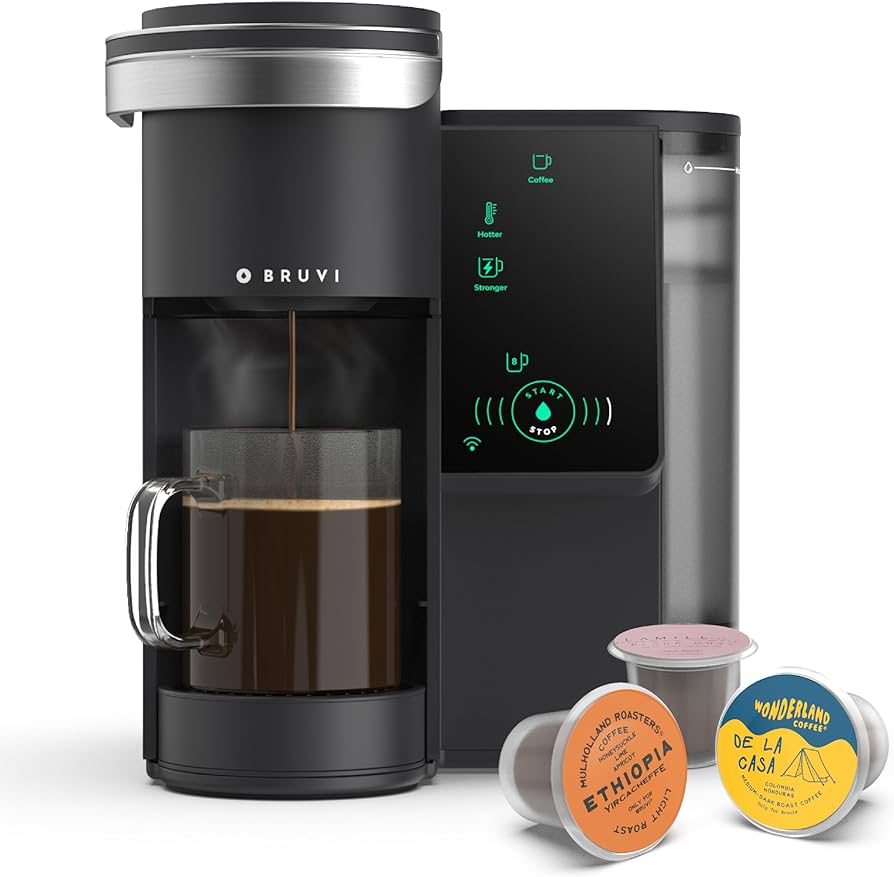
Factors To Consider
When determining the compatibility of your single-serve coffee maker with a water filtration system, several key factors come into play. Understanding these factors can help you make an informed decision and ensure that your coffee maker operates at its best.
Machine Specifications
Check the manufacturer’s specifications for your coffee maker to see if it is designed to work with a water filtration system. Some machines may have built-in filters or specific requirements for water quality to function correctly.
Water Quality
Consider the quality of your tap water before investing in a filtration system. If your water is relatively clean and free of contaminants, you may not need a filtration system. However, if you notice a distinct taste or smell in your water, a filter may be beneficial.
Filter Type
Different water filtration systems use varying technologies to remove impurities from water. Choose a filter that aligns with your coffee maker’s requirements and your water quality needs. Ensure that the filter is compatible with your machine and easy to install.
Maintenance Needs
Factor in the maintenance requirements of both your coffee maker and water filtration system. Some filters need regular replacement to maintain optimal performance, while others may require periodic cleaning or disinfection. Choose a system that fits your lifestyle and maintenance preferences.
Compatibility Issues
While using a water filtration system with your single-serve coffee maker can enhance the quality of your brew, compatibility issues may arise. Here are some common challenges to be aware of when integrating these two technologies.
Filter Size
The size of the filter and the coffee maker’s water reservoir may impact compatibility. Some coffee makers have limited space for filters, making it challenging to install a bulky or oversized filter system. Consider the dimensions of your machine and the filter before making a purchase.
Flow Rate
The flow rate of the water filtration system may not align with the coffee maker’s brewing requirements. If the filter system hinders the flow of water into the machine, it can impact the brewing process and result in subpar coffee quality. Ensure that the filter system can deliver water at the necessary rate for your coffee maker.
Water Temperature
Some water filtration systems may lower or raise the water temperature, affecting the brewing process. Coffee requires specific water temperatures for optimal extraction, so any deviations can lead to under or over-extracted coffee. Verify that the filter system maintains the correct water temperature for your coffee maker.
Filter Clogging
Filters can become clogged with sediment or impurities over time, reducing water flow and filtration efficiency. Clogged filters can cause backups in the coffee maker’s water lines, resulting in brewing issues and potential damage to the machine. Monitor your filter’s condition and replace it as needed to prevent clogs.
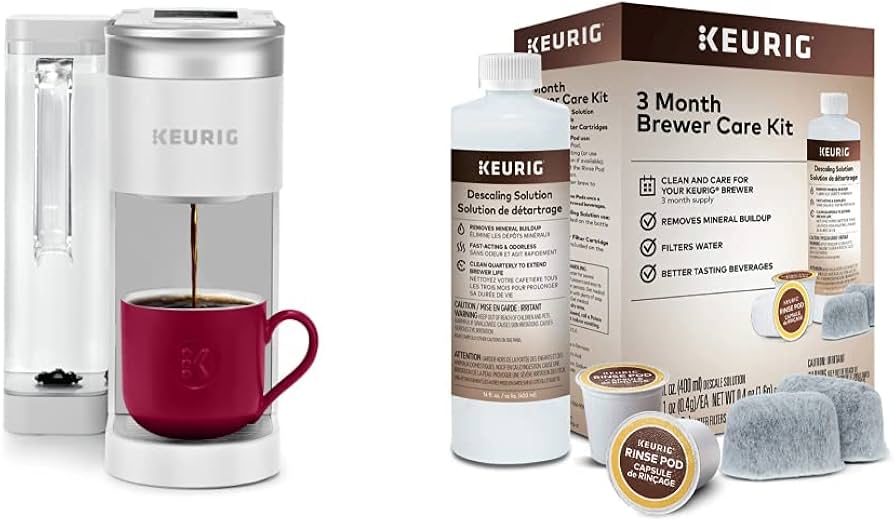
Troubleshooting Tips
If you encounter compatibility issues when using a water filtration system with your single-serve coffee maker, don’t panic. There are several troubleshooting tips you can try to resolve common problems and ensure a seamless brewing experience.
Flush the System
Before installing a new filter, flush the water filtration system to remove any air bubbles or debris that may be present. This can help prevent filter clogs and ensure the filter operates at its best capacity.
Adjust Water Settings
If the water temperature or flow rate is not aligning with your coffee maker’s requirements, adjust the settings on the filtration system to meet these needs. Most filters have adjustable settings that allow you to fine-tune the water output for brewing coffee.
Clean and Maintain Regularly
To prevent clogs and ensure optimal performance, clean and maintain your water filtration system regularly. Follow the manufacturer’s guidelines for filter replacement, cleaning, and disinfection to keep the system running smoothly.
Seek Professional Help
If you’re still experiencing compatibility issues after trying troubleshooting tips, consider seeking professional help. Contact the manufacturer of your coffee maker or water filtration system for assistance and advice on resolving any technical problems.
Conclusion
In conclusion, the compatibility of single-serve coffee makers with water filtration systems hinges on various factors, such as machine specifications, water quality, filter type, and maintenance needs. While using a filtration system can enhance the taste and quality of your coffee, it’s essential to ensure that the two technologies work together seamlessly. By understanding the potential challenges and troubleshooting tips, you can enjoy a delicious cup of coffee brewed with clean, filtered water every time. Cheers to your next perfect brew!
